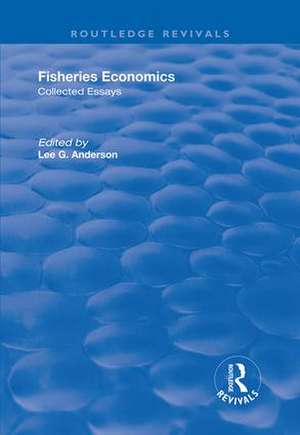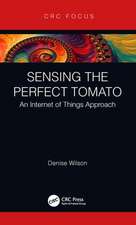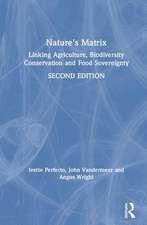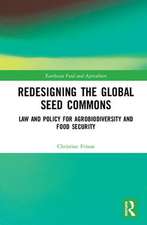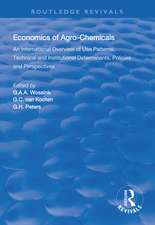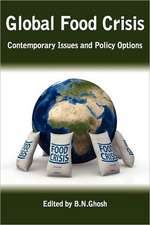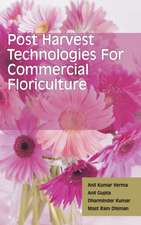Fisheries Economics, Volume I: Collected Essays: Routledge Revivals
Editat de Lee G. Andersonen Limba Engleză Paperback – 30 iun 2020
| Toate formatele și edițiile | Preț | Express |
|---|---|---|
| Paperback (1) | 328.13 lei 43-57 zile | |
| Taylor & Francis – 30 iun 2020 | 328.13 lei 43-57 zile | |
| Hardback (1) | 1181.73 lei 43-57 zile | |
| Taylor & Francis – 21 noi 2018 | 1181.73 lei 43-57 zile |
Din seria Routledge Revivals
- 9%
 Preț: 801.71 lei
Preț: 801.71 lei - 8%
 Preț: 432.64 lei
Preț: 432.64 lei -
 Preț: 153.83 lei
Preț: 153.83 lei -
 Preț: 245.88 lei
Preț: 245.88 lei -
 Preț: 309.79 lei
Preț: 309.79 lei -
 Preț: 258.73 lei
Preț: 258.73 lei - 9%
 Preț: 764.35 lei
Preț: 764.35 lei - 9%
 Preț: 903.42 lei
Preț: 903.42 lei -
 Preț: 311.18 lei
Preț: 311.18 lei -
 Preț: 357.45 lei
Preț: 357.45 lei - 9%
 Preț: 626.93 lei
Preț: 626.93 lei -
 Preț: 317.54 lei
Preț: 317.54 lei - 9%
 Preț: 764.30 lei
Preț: 764.30 lei -
 Preț: 257.01 lei
Preț: 257.01 lei -
 Preț: 238.40 lei
Preț: 238.40 lei -
 Preț: 259.48 lei
Preț: 259.48 lei - 9%
 Preț: 938.10 lei
Preț: 938.10 lei -
 Preț: 341.33 lei
Preț: 341.33 lei -
 Preț: 264.10 lei
Preț: 264.10 lei -
 Preț: 294.98 lei
Preț: 294.98 lei -
 Preț: 308.89 lei
Preț: 308.89 lei -
 Preț: 207.40 lei
Preț: 207.40 lei -
 Preț: 347.50 lei
Preț: 347.50 lei -
 Preț: 302.59 lei
Preț: 302.59 lei -
 Preț: 389.40 lei
Preț: 389.40 lei -
 Preț: 257.01 lei
Preț: 257.01 lei -
 Preț: 358.30 lei
Preț: 358.30 lei - 9%
 Preț: 640.91 lei
Preț: 640.91 lei - 9%
 Preț: 619.49 lei
Preț: 619.49 lei -
 Preț: 228.88 lei
Preț: 228.88 lei -
 Preț: 265.16 lei
Preț: 265.16 lei -
 Preț: 257.90 lei
Preț: 257.90 lei -
 Preț: 266.06 lei
Preț: 266.06 lei -
 Preț: 258.73 lei
Preț: 258.73 lei -
 Preț: 384.01 lei
Preț: 384.01 lei -
 Preț: 246.38 lei
Preț: 246.38 lei - 9%
 Preț: 832.08 lei
Preț: 832.08 lei -
 Preț: 266.20 lei
Preț: 266.20 lei -
 Preț: 294.53 lei
Preț: 294.53 lei - 18%
 Preț: 695.86 lei
Preț: 695.86 lei - 9%
 Preț: 934.96 lei
Preț: 934.96 lei - 5%
 Preț: 243.38 lei
Preț: 243.38 lei -
 Preț: 274.69 lei
Preț: 274.69 lei -
 Preț: 208.20 lei
Preț: 208.20 lei - 9%
 Preț: 659.19 lei
Preț: 659.19 lei -
 Preț: 259.69 lei
Preț: 259.69 lei - 9%
 Preț: 1038.47 lei
Preț: 1038.47 lei -
 Preț: 389.46 lei
Preț: 389.46 lei -
 Preț: 302.14 lei
Preț: 302.14 lei -
 Preț: 302.27 lei
Preț: 302.27 lei
Preț: 328.13 lei
Preț vechi: 419.17 lei
-22% Nou
Puncte Express: 492
Preț estimativ în valută:
62.81€ • 68.25$ • 52.79£
62.81€ • 68.25$ • 52.79£
Carte tipărită la comandă
Livrare economică 21 aprilie-05 mai
Preluare comenzi: 021 569.72.76
Specificații
ISBN-13: 9781138708983
ISBN-10: 1138708984
Pagini: 886
Dimensiuni: 168 x 244 mm
Greutate: 0.67 kg
Ediția:1
Editura: Taylor & Francis
Colecția Routledge
Seria Routledge Revivals
Locul publicării:Oxford, United Kingdom
ISBN-10: 1138708984
Pagini: 886
Dimensiuni: 168 x 244 mm
Greutate: 0.67 kg
Ediția:1
Editura: Taylor & Francis
Colecția Routledge
Seria Routledge Revivals
Locul publicării:Oxford, United Kingdom
Cuprins
Contents: Volume I: The Basics: The economic theory of a common-property resource: the fishery, H. Scott Gordon; The fishery: the objectives of sole ownership, Anthony Scott; Some considerations of the population dynamics and economics in relation to the management of the commercial marine fisheries, Milner B. Schaefer; The economics of fishing and modern capital theory: a simplified approach, Colin W. Clark and Gordon R. Munro; The optimal exploitation of renewable resource stocks: problems of irreversible investment, Colin W. Clark, Frank H. Clark and Gordon R. Munro. Refinements: Demand Supply and Inputs: Optimization and suboptimization in fishery regulation, Ralph Turvey; Factor rents, sole ownership and the optimum level of fisheries exploitation, Parzifal Copes; Externalities, factor proportions and the level of exploitation of free access resources, J.R. Gould. Extinction: Extinction of a fishery by commercial exploitation: a note, J.R. Gould; The economics of over exploitation, Colin W. Clark. Disaggregated Models: On models of commercial fishing, Vernon L. Smith; The relationship between firm and fishery in common properties fisheries, Lee G. Anderson. Regulation: Development of economic theory on fisheries regulation, Anthony Scott; Economic and social implications of the main policy alternatives for controlling fishing effort, J.A. Crutchfield; Towards a predictive model for the economic regulation of commercial fisheries, Colin W. Clark; Individual transferable quotas: theory and practice, R. Quentin Grafton; Minimum information management in fisheries, Ragnar Arnason; Individual transferable quotas and production externalities in a fishery, John R. Boyce; A critical review of the individual quota as a device in fisheries management, Parzifal Copes; Entry restrictions in the fishery: a survey of the evidence, Ralph E. Townsend; Contracting problems and regulation: the case of the fishery, Ronald N. Johnson and Gary D. Libecap; Name index. Volume II: Extensions: Multispecies Models: Analysis of open access commercial exploitation and maximum economic yield in biologically and technologically interdependent fisheries, Lee G. Anderson; An economic analysis of the fisheries bycatch problem, John R. Boyce. International Utilization: The great fish war: an example using a dynamic Cournot-Nash solution, David Levhari and Leonard J. Mirman; The optimal management of a transboundary renewable resource, Gordon R. Munro; Fishing as a super game, Rögnvaldur Hannesson. Uncertainty: Stochastic bioeconomics: a review of basic methods and results, Peder Andersen and Jon G. Sutinen; How to set catch quotas: constant effort and constant catch, Rögnvaldur Hannesson and Stein Ivar Steinshamm; Implementing the precautionary principle in fisheries management through marine reserves, Tim Lauck, Colin W. Clark, Marc Mangel and Gordon R. Munro; Marine reserves: what would they accomplish?, Rögnvaldur Hannesson. Beyond the Schaeffer Model: Beverton-Holt model of a commercial fishery: optimal dynamics, Colin Clark, Gordon Edwards and Michael Friedlaender; Bioeconomics of spatial exploitation in a patchy environment, James N. Sanchiro and James E. Wilen. Schooling Species: The dynamics of an open access fishery, Trond Bjørndal and Jon M. Conrad; The optimal management of North Sea herring, Trond Bjørndal. The Share System: The share system in open-access and optimally regulated fisheries, Lee G. Anderson. Recreational Fisheries: Bioeconomic models of marine recreational fishing, Kenneth E. McConnell and Jon G. Sutinen; Toward a complete economic theory of the utilization and management of recreational fisheries, Lee. G. Anderson. Analysis of Management Agencies: The economics of fishery law enforcement, Jon G. Sutinen and Peder Andersen; Optimal governing instrument, operational level and enforcement in natural resource regulation: the case of the fishery, Lee G. Anderson and Dwight R. Lee; A model of regulated open access use, Francis R. Homans and James E. Wilen. Applications: Property rights and efficiency in the oyster industry, Richard J. Agnello and Lawrence P. Donnelley; Production economics and optimal stock size in a North Atlantic fishery, Trond Bjørndal; Optimal timing of harvest for the North Carolina bay scallop fishery, Robert L. Kellogg, J.E. Easley Jr and Thomas Johnston; A bioeconomic model of the Pacific whiting, John M. Conrad; Assessing efficiency gains from the individual transferable quotas: an application to the mid-Atlantic surf clam and ocean quahog fishery, Quinn Weninger; Bioeconomic analysis of alternative selection patterns in the United States Atlantic silver hake fishery, E.M. Thunberg, T.E. Hesler and R.K. Mayo; Name index.
Notă biografică
Lee G. Anderson is Professor of Economics at College of Marine Studies, University of Delaware, Newark, USA and President-elect of the International Institute of Fisheries Economics and Trade
Descriere
This title was first published in 2002: This important collection of international research on fisheries economics offers a comprehensive source of contemporary research on key topics in the field, providing an indispensable resource for those studying across the fields of natural resources, fisheries economics and particularly fisheries management.
